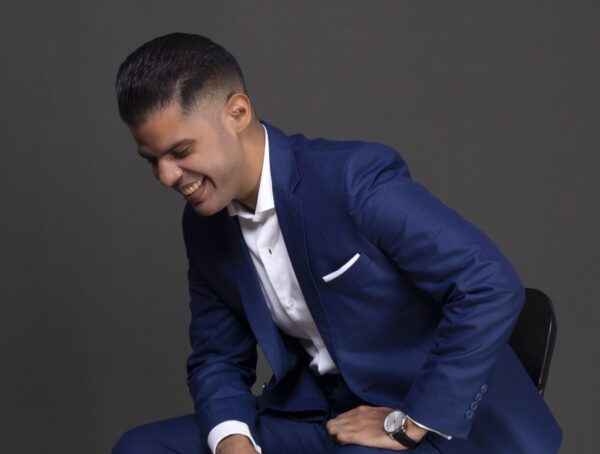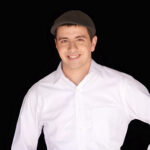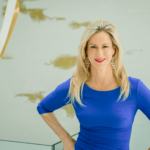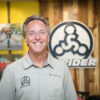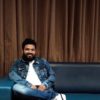Founder@ Interview
Interview with Morgana McCabe Allan

“I want to let people know that their business will require from them whatever they’re prepared to put into it. So, if you start by working 60 hours a week in the hopes that, later, you’ll be able to work less, invariably you’ll still wind up working those same 60 hour weeks. In business, there’s always a reason to do more, which is why it’s so crucial to have boundaries and to put them in place early..” – Morgana McCabe Allan
Today we feature Morgana McCabe Allan, the founder at Morgana McCabe Allan Ltd. We hear their story in their own words, their successes, their challenges and their insights.
Let’s start by getting to know you. Can you please tell us a little bit about you and what you do?
Aside from being named after a famous witch, I live in Scotland with my three young kids and my husband, who retired in July 2018. I also have a PhD and I’m the founder of Morgana McCabe Allan Ltd.
With my business, I offer teaching and coaching on what I call transformational entrepreneurship. 90% of it is about mindset while the other 10% is foundational, organic business skills.
I truly believe that entrepreneurship can be the vehicle for transpersonal experiences, collaborative development, and the expansion of human consciousness, as long as it’s heart-centred.
When it is, it can help people to create the sort of wealth they can feel all around them, not just in terms of money and profits, but in their relationships with every person, place, thing, idea, and social construct that they interact with. This is a real game-changer for people because it helps them see that having millions of material possessions doesn’t really feel like abundance.
We’re all surrounded by more things than humanity has ever possessed. If that was what abundance was really all about, we’d all feel it all the time! In reality, it’s about recognising what’s right for you and stepping into ownership of that.
A great introduction and start to this interview. Can you please tell us, how did you start, from what age, and what made you decide to change direction and start?
I’ve always been entrepreneurial. I made my first money at age three, started in my mum’s artisanal, live-plant business when I was seven years old and, between the ages of eight and 14, I had my own pet-breeding business.
It had always been very obvious to me that you create money. However, the world tells you that you need to have all of these fancy degrees to get anywhere. So, I went to university just like I thought I should.
In all honesty, during my time there, I think I became addicted to education, and I moved straight on from my undergraduate degree to an MA and then a PhD. But, it was clear to me from about the first week of my PhD that I wasn’t going to stay in academia for the rest of my life.
This might sound impressive on paper, but my journey was not an easy one, particularly in the early days. I missed a total of about six years at school if you add up all the absences I had due to ill health and I suffered multiple cases of abuse outside the home.
I also had to cope with anorexia, depression, PTSD, and later an abusive marriage and divorce. I guess that, in many ways, I’ve only achieved so much because my only respite from it all was my studies and ongoing entrepreneurship.
Plus, while I was objectively very high performing as an academic, I always hated how people had to fight so bitterly for crumbs of funding and publication opportunities. Even though I very often secured them, it never brought me much joy.
This was partly because I knew it was at the expense of other amazing candidates and partly because it didn’t put a stop to my impostor syndrome, perfectionism, and procrastination problems.
So, when I finally graduated with my PhD, I did so happily and with absolutely no other plan than to live my best life! And that’s exactly what I set out to do with my business, which I founded the day before my 37th birthday and two months before the birth of my third child.
Every day, I feel fortunate to do something I’m passionate about and to work with so many wonderful people. Together I know that we can create all the impact and income that we want, without having to compete for scraps. I’ve never looked back since.
Thank you for that insight. So can you tell us…What does your business do and where is your company based?
My team and I are based in Fife, Scotland but we work with clients from all over, from the Western Coast of the US through Europe and out to Dubai. We serve entrepreneurs at all levels, some of whom are just starting to build their foundations and others who already have seven and eight-figure businesses.
The thing that tends to link my clients is the fact that, despite having the potential to achieve amazing things, they are filled with fear. This holds them back from paying themselves real money or enjoying what they have. Instead, they constantly strive to prove themselves, never realising that there’s no end point to that unachievable goal.
So, our mission is to help people experience their business from a place of inner worth, giving them the courage to show up as who they really are so they can enjoy what they do. We do that by working with clients to interrogate and unravel the social constructs that make them feel as though they have to keep doing more in order to feel fulfilled. Mostly, they’re constructs that are fostered by the education system and the toxic masculinity that permeates so much of our society.
In helping people to problematise these constructs, we give them a chance to remake their realities with self-confidence at the core. This gives people struggling with impostor syndrome the self-belief to try something original and lets entrepreneurs at all levels know that they’re allowed to be happy with where they’re at.
My clients invariably end up with more drive and a determination to make more money, and all in service of making a bigger impact on the people they serve.
What’s the story behind your success? What led to your aha moment? how did you get to where you are now?
Back when I was in academia, I was at a big, swanky international conference in The Hague to present my research, and this professor from the Sorbonne sat down next to me. He asked me about my PhD research and, when I told him, he was furious!
He thought it was an outrage that somebody at my level would be studying something so immense and even started to say that he was going to contact my university to tell them to kick me off the project.
For a minute, all I wanted was for the ground to swallow me up. But then, I found myself telling him that, yes, maybe he was right, but that since I was the once who conceived the entire project, I was absolutely qualified to put the work in. And, amazingly, he started to look at me in a completely different way.
That was the moment where I realised that nobody is ever going to pull your chair out for you and offer you a seat at the table. In fact, they’re more likely to try and pull the chair away from you so that you don’t have a place at all. So you need to trust yourself. And together we need to start building different tables – in academia, business, and beyond.
We have so many opportunities in business to say “I created this” or “I can help with that.” Sadly, though, a lot of people (especially women) very often feel as though they have to wait to be asked.
Thankfully, I had a mentor for eight years in university who always pushed me to put myself forward. I would tell him about something I was thinking of doing in 10 years’ time and he would tell me to apply now. I often pushed back thinking that I wasn’t ready. But, once I finally gave in, I always got accepted. He ended up teaching me a lot about going outside of my comfort zone and creating success.
Thank you for sharing that. What’s been your life’s biggest lesson so far?
Out of the many lessons I’ve learned, I’d say one of the biggest is that not everyone has good intentions. You always have to look beyond the shiny sales process, and this is something I had to learn the hard way when I went through a very well-created funnel.
It happened when I came across an ad that looked like it had been written specifically for me. I ended up signing up and, long story short, I was scammed out of $7,500. And, not only that, but they got my business’s Instagram and Facebook pages permanently banned.
At the time, we had several thousand followers across both accounts, so losing them had a devastating impact on my social media. But, when I clicked through, I found that the company behind it was operating under seven or eight different names.
There was also only one post on their Facebook page and a bunch of other signs that I can now see were big red flags. But, because it was such a convincing ad, I still believed what it had promised me.
Still, I wouldn’t do things differently. The situation opened my eyes to the fact that we need to be really careful about who we’re interacting with online. Because you’re not looking a person right in the eyes, it’s so much easier for them to feel comfortable exploiting you. It’s something that I thought I knew at the time, but that didn’t stop me from falling into the trap. So, I’m glad I had that lesson when I did.
Ever since that happened, I’ve been even more conscious not only about how I speak to my audience and what I will tolerate for them, but in how I guide them through the relationships with their audiences too. I also don’t jump into big investments without sitting down with my team and getting them to have a look at the new opportunity I’ve found. Ultimately, it’s made me much savvier.
One thing I wish I’d known earlier is that what constitutes expertise on the internet is not the same as in academia.
When I first came into the online space, I felt as though there were so many people who did what I do and that, as a result, I’d just be the baby one! But, eventually, I came to realise that my qualifications and expertise really do count for something. After all, I wrote my PhD using methodology that I created and it passed without corrections. Since then, my team and I have gone on to turn my research into a modality that changes people’s lives.
Now I see so many very successful people who are going through this struggle for themselves too. In the process of reinvention, they too forget that they’re qualified. They’re frightened to take up space. We all have to stop listening to the voice of doubt.
We have to learn, with a lot of self love, to keep the voice of doubt in perspective, and to remember that expertise is relative. Don’t diminish your self worth based on what other people are doing – anyone can declare themselves an expert online. That’s one of the beauties and terrors of it. And why it’s so important not to define yourself by what others are doing. Instead, focus on being the best you can be.
If you were to go back in time, what piece of advice would you give to your younger self?
I’d tell myself to be prepared to take some emotional punches to the face, and to learn when to punch back, and when to walk away. Some fights are absolutely necessary and it’s our job to put ourselves in the ring and to help change the world. Some are really coming from ego and don’t serve anything but the status quo.
Learn to tell the difference. And with that said, you also need to learn to apologise gracefully and to accept apologies. Mistakes are going to happen – they are absolutely 100% part of the process of growing as a person and growing a business. It’s often how you handle these moments that matters most.
We’re nearly halfway through our interview so it’s a great time to ask how does your business run. What three tools make your business run better?
Honestly, without Zoom, I can’t even imagine where we would be. The clients that make up my core programs come from all over the place and I connect with them via Zoom. Plus, it’s what I use to record a lot of my course materials, so we really couldn’t do without it.
There’s also Canva, where we make all of our slides, episodes, social media graphics, and workbooks. And then the third one would have to be Kajabi, which is the site we use to host our courses, email campaigns, and other stuff like that. It’s kind of an all-singing, all-dancing type of platform where you can build your website, measure people’s progress, and send them an automatic email when they finish a module.
Before I used these tools, I actually had a much more local clientele. It wasn’t idea though, as I had a very young baby and having people come to the house could be very challenging. Caring for her and my boys, I realised how precious my time was and that having an international audience would allow me to be more available at the times the kids needed me most. That’s when I jumped online. Even though I still had a handful of Scottish clients, I even began meeting them via zoom rather than in person. It turned out to be a blessing when COVID hit.
Something I’m interested in exploring is Amazon Affiliates because we recommend so many books to people. Particularly on our intensive, high-level programs, there’s generally a reasonable amount of recommended reading. So, it would be nice to have affiliate links.
There’s also the possibility that maybe, one day, we’ll make an app for the Oracle cards we’re in the process of creating. Right now, we’ve got about 40 of the cards designed, so we’re about two-thirds of the way through, and I would love to have an app version of the finished product.
What do you know now that you wished you had known before?
One thing I wish I’d known earlier is that what constitutes expertise on the internet is not the same as in academia.
When I first came into the online space, I felt as though there were so many people who did what I do and that, as a result, I’d just be the baby one! But, eventually, I came to realise that my qualifications and expertise really do count for something. After all, I wrote my PhD using methodology that I created and it passed without corrections.
Since then, my team and I have gone on to turn my research into a modality that changes people’s lives.
Now I see so many very successful people who are going through this struggle for themselves too. In the process of reinvention, they too forget that they’re qualified. They’re frightened to take up space. We all have to stop listening to the voice of doubt.
We have to learn, with a lot of self love, to keep the voice of doubt in perspective, and to remember that expertise is relative. Don’t diminish your self worth based on what other people are doing – anyone can declare themselves an expert online. That’s one of the beauties and terrors of it. And why it’s so important not to define yourself by what others are doing. Instead, focus on being the best you can be.

What has been your greatest or proudest achievement or moment?
I don’t know if I can narrow it down to just one achievement, but every time I see a phenomenal transformation with a client I always feel the same sense of immense pride. To use just one example, I had a client who came to me needing to pivot and to do a lot of inner healing. Ultimately, she needed help finding out who she really is as a person and as an entrepreneur.
Since starting out with me on the 29th of March, she has already achieved all of that and more. And, if she continues along the same trajectory, she’s gone from zero to on track for her first 6 figure year! But, more importantly, she’s also got so much more confidence now and, because of the work we’ve done together, she knows who she is in an entirely different way.
I guess it’s fair to say that I have loads of personal achievements behind me, too. But I often feel as though something like, say, passing my PhD without corrections or changing my personal wealth experience isn’t really an achievement unless it benefits someone else. Really, the thing that feels like an achievement to me is seeing a change happen in somebody’s life.
What future life goals do you want to achieve and why?
We’ve actually already achieved a lot of our life goals. Retiring my husband Duncan was such a big one and we did that in 2018. Beyond that, I’m not really the sort of person who wants to have a castle or a garage full of cars. My goals aren’t material or money-driven. I just want to bring joy to people, promote real social change, and help people create interconnected lives that they love.
So, what I’d really like to do is continue to have a positive impact on other people because that’s what drives me in every area of my life. Hopefully, in the future, I can create a vehicle with my business that will allow me to change far more lives at once, rather than just working with one person at a time.
To finish our inspire questions…”We believe that sharing inspiring words can inspire others.” If there was one positive thing you would say to someone to inspire and empower them what would it be and why?
I want to let people know that their business will require from them whatever they’re prepared to put into it. So, if you start by working 60 hours a week in the hopes that, later, you’ll be able to work less, invariably you’ll still wind up working those same 60 hour weeks. In business, there’s always a reason to do more, which is why it’s so crucial to have boundaries and to put them in place early.
If you don’t, you end up taking on more work because you feel the need to keep pushing, even when it doesn’t feel right. This is what leads people to invest in so many different solutions which, in reality, aren’t getting to the core of the problem. You see, a business shouldn’t purely be about chasing money. Those that are tend to take over people’s lives and offer little fulfilment.
The goal, instead, should be about creating a business that supports your life but does not control or overwhelm it. To do that, you have to really back yourself, your vision, and your methods. So often, I see people investing in strategies when what they really need is to better understand themselves and how they want to experience being in the world.
A strategy that’s not informed by that knowing can’t create it for you. You have to find it.
Once you accept that fact and realise that you need to lead from the inside, it becomes much clearer what’s important and what’s not. As a result, you won’t feel the need to throw everything into your work and the balance between your success and your personal life will come about far more naturally.
“Thank you it has been great learning more about your founder story and Morgana McCabe Allan Ltd”
To learn more about Morgana McCabe Allan Ltd Visit https://www.morganamccabeallan.com
Inspired by this story? Please share this story and other founder stories.
For more inspiring founders stories check out Founder Stories.
Have an inspiring founder story?
Every entrepreneur’s journey is unique and powerful.
Your story of perseverance and success could be the spark that ignites the next generation of world-changing ideas. By sharing your experiences, you’re not just telling a story – you’re lighting a path for others to follow, dream, and achieve.
Disclaimer:
The views, thoughts, information, and opinions expressed in the text, videos, images belong solely to those of the individuals involved, and do not necessarily represent those of Founderat.com and its corporate owners, employees, organization, committee, or other group or individuals.
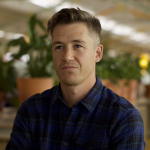
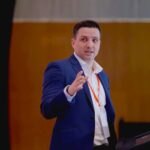



![[Company Name]'s Founder Stories](/wp-content/uploads/2024/10/Fonuder@-Partners-01a-150x150.png)





